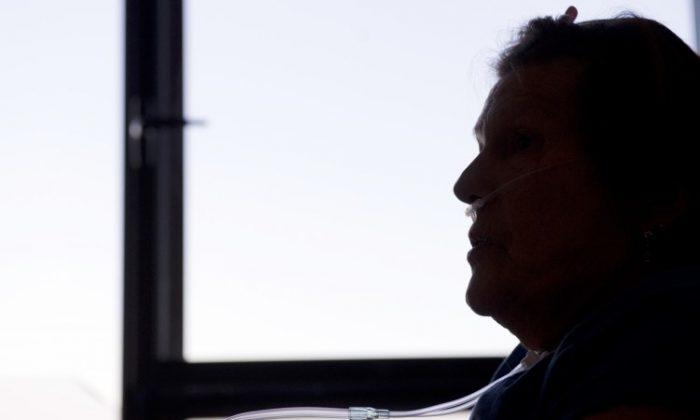The co-founder of an alliance of physicians against euthanasia and assisted suicide says Canada’s medically assisted dying policy sets a “dangerous precedent” that has opened the door to other scenarios in which people can be denied medical care or have their lives prematurely ended.
Evaluating Life: Triage Protocol
“I think an even greater issue is how we evaluate life. Once you open up that door to ending people’s lives, and evaluate people’s lives, you have the whole issue of [COVID-19] and the triage system that was being supported, and directives being set up not to care for people who were ill,” Saba said.“Once the government starts evaluating lives, and not seeing it as their mission—health care is a mission of caring for people who need to be cared for—then we’ll decide who gets cared for, who won’t get cared for, who lives, who dies. And that’s why it is so important that we … push back on this,” Saba said.
Saba began his fight against abortion, euthanasia, and medically assisted dying with the battle to save his daughter’s life. In 2009, Saba and his wife were told that their unborn baby, Jessica, had a severe congenital heart defect—her heart’s pulmonary valve was almost completely sealed—making her survival nearly impossible. They were offered the option of abortion, which they refused.
Upsurge in MAiD
Nearly 7,600 Canadians died via medically assisted death in 2020, Health Canada senior official Abby Hoffman told the Special Joint Committee on Medical Assistance in Dying on June 7. This is a 35 percent increase from the roughly 5,630 cases in 2019, a number which was itself a 26 percent uptick from the approximately 4,470 cases in 2018.Based on existing data, more than 21,500 people have been euthanized in Canada since Bill C-14, Bill C-7’s predecessor, was passed in 2016.
“What was supposed to be just for terminally ill people really at the end of life has now been expanded to include people who are disabled, who have chronic conditions … and they are looking at and studying for people who have mental health challenges,” Saba said.
Parliament has also heard arguments for expanding medically assisted death to children.
Pandemic Makes People Vulnerable
There are approximately 6.2 million people aged 15 and over in Canada who have a disability, according to Statistics Canada. This is approximately 15 percent of the Canadian population.According to Saba’s calculations, roughly 70 percent of Canadians would be eligible for medical assisted deaths—adding up the numbers of people with disabilities, chronic conditions, and mental health problems.
Saba condemned the passing of Bill C-7 during the COVID-19 pandemic, a time “when people are most vulnerable.”
“We’re encouraging and we’re supporting … killing people with disabilities, because we know that they’ve been marginalized, that they’re struggling, and it doesn’t take much to push people over the edge,” Saba said.
He said the media have had a hand in making assisted dying glamorous and socially acceptable.
“What they always do [is] they look for great photo shoots, but … people who are struggling with life’s illnesses, they don’t always look so great,” Saba said. “But that’s where our responsibility is—to surround people when they don’t look so great, [when] they don’t look so youthful, when they don’t look the best—we’re going to be there, we’ll watch them, fix their hair, we’ll do whatever it takes to support them.”
“Ultimately, I hope one day that assisted suicide and euthanasia get reversed in our country because it’s … a dangerous policy and a dangerous precedent.”






Friends Read Free